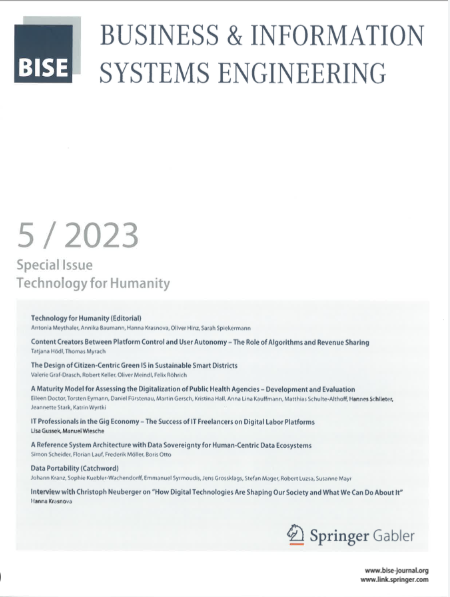资源分配对机器学习生命周期的影响
IF 10.4
3区 管理学
Q1 Computer Science
引用次数: 0
摘要
组织开发机器学习(ML)应用程序的能力取决于其可用的资源库。如果没有对所有相关资源及其对机器学习生命周期的影响的认识和理解,我们将面临分配效率低下以及缺失垄断趋势的风险。为了抵消这些风险,该研究开发了一个框架,将相关资源与机器学习生命周期中的程序和技术依赖关系交织在一起。为了严格发展和评估这一框架,本文遵循设计科学研究范式,并建立在文献综述和访谈研究的基础上。在这样做的过程中,它弥合了软件工程和管理观点之间的差距,以推进机器学习管理论述。结果通过引入尚未讨论但相关的资源来扩展文献,描述资源对机器学习生命周期的六种直接和间接影响,并揭示资源的上下文属性。此外,该框架在实践中有助于支持组织决策和情境化垄断趋势。本文章由计算机程序翻译,如有差异,请以英文原文为准。

The Impact of Resource Allocation on the Machine Learning Lifecycle
Abstract An organization’s ability to develop Machine Learning (ML) applications depends on its available resource base. Without awareness and understanding of all relevant resources as well as their impact on the ML lifecycle, we risk inefficient allocations as well as missing monopolization tendencies. To counteract these risks, the study develops a framework that interweaves the relevant resources with the procedural and technical dependencies within the ML lifecycle. To rigorously develop and evaluate this framework the paper follows the Design Science Research paradigm and builds on a literature review and an interview study. In doing so, it bridges the gap between the software engineering and management perspective to advance the ML management discourse. The results extend the literature by introducing not yet discussed but relevant resources, describing six direct and indirect effects of resources on the ML lifecycle, and revealing the resources’ contextual properties. Furthermore, the framework is useful in practice to support organizational decision-making and contextualize monopolization tendencies.
求助全文
通过发布文献求助,成功后即可免费获取论文全文。
去求助
来源期刊

Business & Information Systems Engineering
工程技术-计算机:信息系统
CiteScore
11.30
自引率
7.60%
发文量
44
审稿时长
3.0 months
期刊介绍:
BISE (Business & Information Systems Engineering) is an international scholarly journal that undergoes double-blind peer review. It publishes scientific research on the effective and efficient design and utilization of information systems by individuals, groups, enterprises, and society to enhance social welfare. Information systems are viewed as socio-technical systems involving tasks, people, and technology. Research in the journal addresses issues in the analysis, design, implementation, and management of information systems.
 求助内容:
求助内容: 应助结果提醒方式:
应助结果提醒方式:


